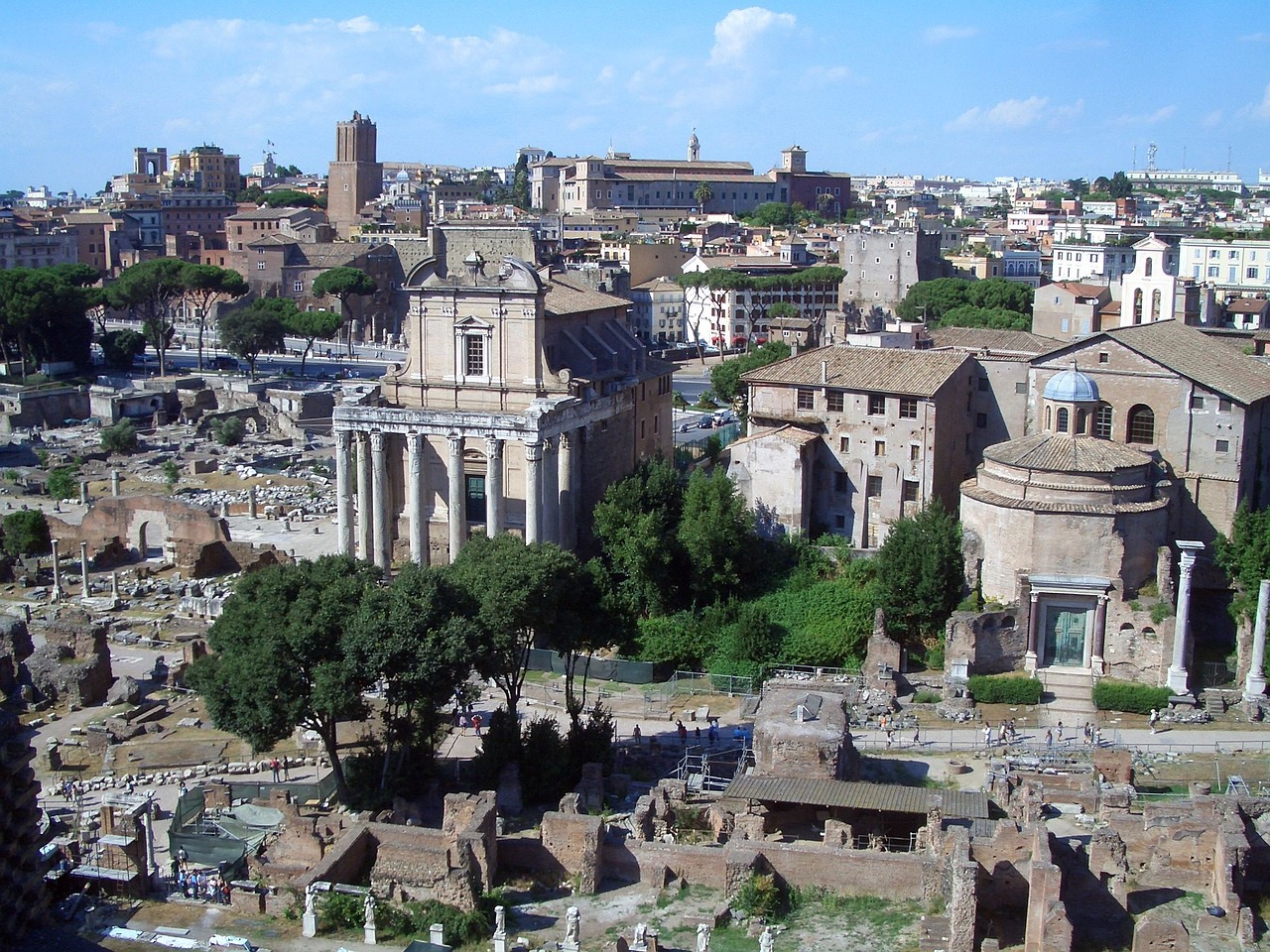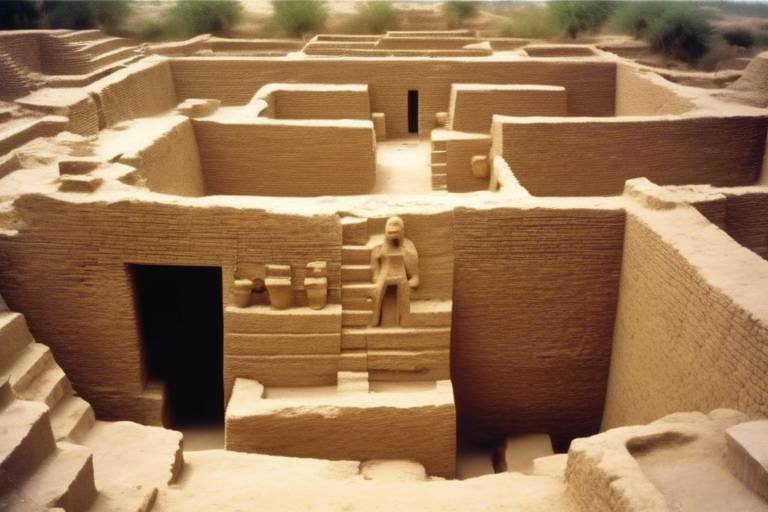The Decline of the Byzantine Empire - A Comprehensive Review
The Byzantine Empire, once a powerful and influential civilization, faced a tumultuous journey towards its eventual decline. This comprehensive review delves into the various factors that contributed to the fall of this remarkable empire, ranging from political instability to external invasions and cultural shifts.
Political Instability was a significant factor that weakened the Byzantine Empire from within. Internal conflicts, power struggles, and succession disputes plagued the empire, leading to a fragmented political structure that struggled to maintain unity and strength.
On the economic front, the empire grappled with numerous challenges that exacerbated its decline. Trade disruptions, financial mismanagement, and inflation all took their toll on the Byzantine economy, further weakening its foundations and ability to sustain itself.
Military Decline played a crucial role in leaving the empire vulnerable to external threats. Diminishing military prowess, coupled with strategic failures and lack of resources, left the Byzantine Empire ill-equipped to defend itself against invading forces.
Social Unrest added to the empire's woes, with revolts, civil unrest, and discontent among the populace further destabilizing an already fragile society. The internal turmoil only served to hasten the empire's decline.
Religious Schisms also played a part in undermining the unity and stability of the Byzantine Empire. Religious divisions and controversies created rifts within the empire, weakening its social fabric and diminishing its ability to stand united against external pressures.
External Invasions, such as those by the Seljuk Turks and the Fourth Crusade, dealt severe blows to the Byzantine Empire, hastening its collapse. These invasions, combined with internal weaknesses, proved to be insurmountable challenges for the empire to overcome.
Cultural Shifts marked a significant turning point in the history of the Byzantine Empire. Changes in cultural values, the loss of traditional practices, and shifting societal norms all contributed to a gradual erosion of the empire's identity and strength.
Despite its decline and fall, the Legacy of Byzantium endures to this day. The Byzantine Empire's influence on art, architecture, politics, and religion continues to shape the world, leaving a lasting imprint on history that transcends its eventual demise.

Political Instability
Political instability was a significant factor that contributed to the decline of the Byzantine Empire. The internal conflicts and power struggles within the empire's ruling elite weakened the political structure, making it vulnerable to external pressures. The constant struggle for power among the aristocracy and the imperial family led to a lack of unity and effective governance.
Moreover, the frequent changes in leadership, often through violent means like assassinations and coups, further destabilized the empire. This constant turmoil at the top echelons of power created a sense of uncertainty and mistrust among the population, eroding the empire's ability to govern effectively.
As different factions vied for control, the Byzantine Empire became fragmented, with regional governors and military commanders asserting their autonomy and challenging the central authority. This fragmentation weakened the empire's ability to respond cohesively to external threats and internal challenges, hastening its decline.

Economic Challenges
The Byzantine Empire faced significant economic challenges that contributed to its decline. One of the key factors was the disruption of trade routes, which had been vital for the empire's prosperity. With the rise of new powers and the shifting of trade routes, Byzantium struggled to maintain its economic dominance. Additionally, financial mismanagement within the empire led to inflation and devaluation of currency, further weakening the economy.
Moreover, the heavy taxation imposed on the population to fund military campaigns and bureaucratic expenses strained the economy and caused resentment among the people. The reliance on taxation as a primary source of revenue eventually led to a decrease in productivity and economic growth. The lack of innovation and investment in key industries also hindered the empire's ability to adapt to changing economic conditions.
Furthermore, the constant wars and conflicts that the Byzantine Empire engaged in drained its resources and manpower, exacerbating the economic challenges it faced. The empire struggled to sustain its military campaigns and protect its borders, leading to increased vulnerability to external threats. As a result, the economic stability of the empire deteriorated, weakening its overall foundation.

Military Decline
During its later years, the Byzantine Empire faced a significant decline in its military strength, which ultimately left it vulnerable to external threats and conquest. The once formidable Byzantine army, known for its strategic prowess and disciplined soldiers, began to suffer from a series of setbacks and failures that weakened its ability to defend the empire's borders.
One of the key factors contributing to the military decline of the Byzantine Empire was the erosion of its traditional military strategies and tactics. As the empire faced new challenges and evolving warfare techniques, its military leadership struggled to adapt, leading to a decline in effectiveness on the battlefield.
Furthermore, internal conflicts and power struggles within the Byzantine military hierarchy further exacerbated the empire's military decline. Rivalry among military commanders and lack of unified leadership hampered the coordination of military campaigns and defense efforts, leaving the empire exposed to external invasions.
The diminishing resources available to the Byzantine military also played a crucial role in its decline. Financial mismanagement and economic challenges strained the empire's ability to maintain a well-equipped and well-trained army, leading to a gradual deterioration of its military capabilities.
Additionally, the emergence of new external threats, such as the Seljuk Turks and other invading forces, posed a significant challenge to the Byzantine military. The empire struggled to repel these incursions due to its weakened state and lack of effective defense strategies, ultimately contributing to its downfall.
In conclusion, the military decline of the Byzantine Empire was a complex and multifaceted process involving internal conflicts, strategic failures, economic challenges, and external invasions. These factors collectively weakened the empire's defense capabilities and paved the way for its eventual collapse.

Social Unrest
Social unrest played a significant role in the decline of the Byzantine Empire, exacerbating its already fragile state. The empire faced widespread discontent among its population, stemming from various factors that fueled unrest and instability.
One of the primary causes of social unrest was the stark divide between the wealthy aristocracy and the impoverished masses. The stark wealth inequality led to resentment and dissatisfaction among the lower classes, who felt marginalized and oppressed by the ruling elite.
Furthermore, the Byzantine Empire grappled with frequent revolts and uprisings, as different factions vied for power and control. These internal conflicts further weakened the empire's cohesion and undermined its ability to govern effectively.
Moreover, the religious tensions within the empire also contributed to social unrest. The rise of theological disputes and schisms within the Christian community led to deep divisions among the populace, fueling conflicts and discord.
The social fabric of the Byzantine Empire was fraying, with societal norms eroding and traditional values being challenged. This breakdown in social cohesion made it increasingly difficult for the empire to maintain order and stability, paving the way for further turmoil and unrest.

Religious Schisms
Throughout history, the Byzantine Empire stood as a symbol of power, grandeur, and cultural richness. However, its decline and fall were marked by a series of complex factors that led to its eventual collapse. In this article, we will delve into the internal conflicts, economic challenges, military decline, social unrest, religious schisms, external invasions, and cultural shifts that contributed to the downfall of the Byzantine Empire. Despite its ultimate demise, the legacy of Byzantium continues to influence the world to this day.
One of the key factors that played a significant role in the decline of the Byzantine Empire was the emergence of religious schisms. The empire, deeply rooted in Orthodox Christianity, faced internal divisions and controversies that weakened its unity and stability. The Great Schism of 1054, which led to the split between the Eastern Orthodox Church and the Roman Catholic Church, created a rift that further fragmented the empire.
Religious conflicts not only strained the social fabric of Byzantine society but also undermined its political authority. The rise of iconoclasm, the debate over the use of religious icons, sparked fierce debates and violence within the empire, leading to widespread unrest among the population.
Moreover, the religious schisms fueled power struggles among the ruling elite, as different factions vied for control over religious institutions and influence over the masses. The controversy over theological doctrines and religious practices sowed seeds of discord that weakened the empire from within.
As religious tensions escalated, the Byzantine Empire found itself embroiled in internal strife that diverted attention and resources away from external threats. The religious schisms not only eroded the empire's moral authority but also hindered its ability to effectively govern and defend its territories against foreign invaders.
In the end, the religious divisions that plagued the Byzantine Empire played a pivotal role in its decline, contributing to the fragmentation of its society and the erosion of its political and military strength. The legacy of these religious schisms continues to shape the historical narrative of Byzantium and serves as a cautionary tale of the dangers of internal discord and religious intolerance.
If you have any questions about the decline of the Byzantine Empire or its historical significance, check out the following FAQs:
- What were the main reasons for the decline of the Byzantine Empire?
- How did religious schisms impact the stability of the empire?
- What role did external invasions play in the fall of Byzantium?
- What is the lasting legacy of the Byzantine Empire?

External Invasions
The Byzantine Empire faced significant challenges from external invasions that posed a severe threat to its existence. One of the most notable invasions was carried out by the Seljuk Turks, a powerful nomadic group originating from Central Asia. The Seljuks launched military campaigns against the Byzantine territories in Anatolia, gradually seizing key regions and weakening the empire's control. This invasion not only led to territorial losses but also strained the Byzantine military resources, making it difficult to defend its borders effectively.
Furthermore, the Fourth Crusade, initially intended to recapture Jerusalem from Muslim control, took an unexpected turn and resulted in the sack of Constantinople, the capital of the Byzantine Empire, in 1204. The Crusaders, diverted by political motives and financial incentives, attacked and looted the city, causing extensive damage to Byzantine infrastructure and institutions. This event marked a significant blow to the empire, accelerating its decline and fragmentation.
The external invasions not only inflicted physical damage on the Byzantine Empire but also shattered its political and economic stability. The continuous threats from foreign powers, coupled with internal turmoil, created a volatile environment that the empire struggled to navigate. Despite valiant efforts to repel invasions and maintain control over its territories, the Byzantine Empire's weakened state made it increasingly vulnerable to external aggression, ultimately contributing to its eventual collapse.

Cultural Shifts
During the later years of the Byzantine Empire, significant cultural shifts began to take place, marking a departure from traditional values and norms that had long defined the empire's identity. These changes encompassed various aspects of Byzantine society, including art, literature, and social customs.
One notable cultural shift was the emergence of new artistic styles that reflected influences from neighboring regions and beyond. Byzantine art, known for its iconic religious imagery and intricate mosaics, started to incorporate elements from different cultures, signaling a departure from the empire's distinct artistic traditions.
Literature also experienced a transformation during this period, with writers exploring themes that diverged from conventional Byzantine narratives. New forms of storytelling and poetry emerged, reflecting the evolving tastes and interests of the population as societal values evolved.
Additionally, changes in social customs and practices began to reshape the fabric of Byzantine society. Shifts in fashion, etiquette, and social hierarchies reflected a broader cultural reorientation that challenged established norms and conventions.
Moreover, the influence of foreign cultures and ideologies started to permeate Byzantine society, leading to a blending of traditions and beliefs. This cultural fusion brought both opportunities for enrichment and challenges to the empire's sense of identity and cohesion.
Overall, the cultural shifts that occurred during the decline of the Byzantine Empire were emblematic of a society in transition, grappling with internal and external pressures that ultimately contributed to its downfall.
- What were the main factors that led to the decline of the Byzantine Empire?
- How did external invasions contribute to the collapse of the Byzantine Empire?
- What is the legacy of the Byzantine Empire?
The decline of the Byzantine Empire was influenced by a combination of political instability, economic challenges, military decline, social unrest, religious schisms, external invasions, and cultural shifts.
External invasions by forces such as the Seljuk Turks and the Fourth Crusade posed significant threats to the Byzantine Empire, weakening its defenses and destabilizing its territories.
Despite its decline and fall, the Byzantine Empire left a lasting legacy in terms of art, architecture, literature, and religious influence, shaping the cultural landscape of the Eastern Mediterranean for centuries to come.

Legacy of Byzantium
The Legacy of Byzantium is a rich tapestry woven with threads of history, culture, and influence that continue to shape the world today. Despite the empire's eventual decline and fall, its impact on various aspects of society and civilization remains profound. One of the most enduring legacies of Byzantium is its preservation and transmission of ancient knowledge and texts. The Byzantines were meticulous in their efforts to safeguard and copy classical works, ensuring that valuable information from antiquity was not lost to the sands of time.
Furthermore, the Byzantine Empire played a crucial role in the development and spread of Christianity. As the eastern counterpart to the Roman Catholic Church, the Byzantine Orthodox Church left an indelible mark on religious practices, iconography, and theology. The legacy of Byzantine Christianity can be seen in the art, architecture, and liturgical traditions of Eastern Orthodox churches to this day.
In addition to its religious and intellectual contributions, the Byzantine Empire's legacy also extends to the realm of law and governance. The Justinian Code, a comprehensive legal system developed under Emperor Justinian I, served as a foundation for legal principles in many European countries. The legacy of Byzantine law can be traced through the centuries, influencing modern legal systems and concepts of justice.
Moreover, the Byzantine Empire's strategic location at the crossroads of Europe and Asia facilitated cultural exchanges and trade networks that connected the East and West. The legacy of Byzantine trade and diplomacy can be seen in the diffusion of goods, ideas, and technologies across continents, shaping the development of global commerce and cultural exchange.
Despite its eventual decline, the Byzantine Empire's legacy endures through its contributions to art, architecture, religion, law, and commerce. The echoes of Byzantium reverberate through the annals of history, reminding us of a civilization that once stood as a beacon of culture, knowledge, and power in the ancient world.
Frequently Asked Questions
- What were the main reasons for the decline of the Byzantine Empire?
The decline of the Byzantine Empire was attributed to various factors including political instability, economic challenges, military decline, social unrest, religious schisms, external invasions, and cultural shifts.
- How did political instability contribute to the fall of the Byzantine Empire?
Political instability within the empire led to internal conflicts and power struggles, weakening the government's control and creating opportunities for external forces to exploit the empire's vulnerabilities.
- What role did economic challenges play in the decline of the Byzantine Empire?
Economic factors such as trade disruptions, financial mismanagement, and inflation contributed to the empire's economic decline, leading to decreased resources for defense and governance.
- How did religious schisms impact the unity of the Byzantine Empire?
Religious divisions and controversies, such as the Great Schism between the Eastern Orthodox Church and the Roman Catholic Church, weakened the empire's unity and support base, further destabilizing its structure.
- What were the significant external invasions that hastened the collapse of the Byzantine Empire?
The invasions by external forces like the Seljuk Turks and the Fourth Crusade posed significant threats to the empire, leading to territorial losses, economic strain, and military defeats that accelerated its downfall.



















